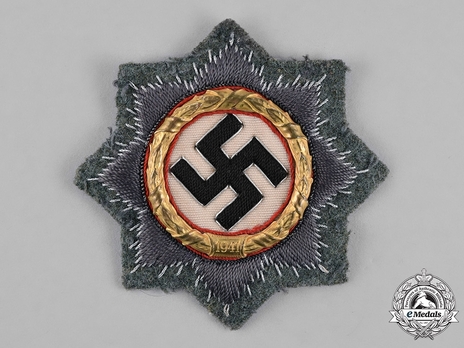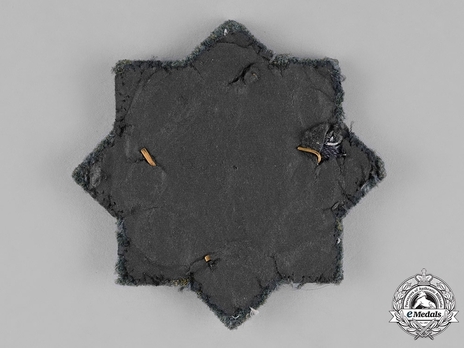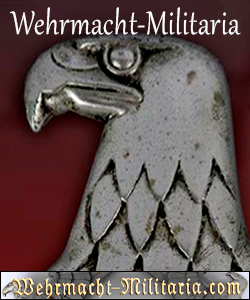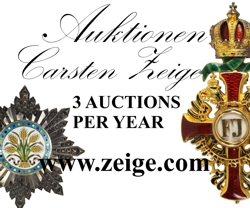German Cross, in Gold, in Cloth (Heer/Army)
CATEGORY: Version
SKU: 01.GTR.0401.101.08.000
Estimated market value:


Estimated market value:
(Deutsches Kreuz in Gold, Stoffausführung). Constructed of a double-overlaid sunburst pattern with eight points, with the bottom outer layer of the cross in silver aluminum bullion threading, while the rest consists of greyish threading; the cross features a fire gilded stamped circular wreath impressed with oak leaves, ribbons, and the introduction year “1941”; the inner and outer sides of the wreath feature a thin red intertwined cord acting as a border around it; within the wreath is a densely embroidered black swastika (Hakenkreuz) with a silver/aluminum outer border; with most of its original paper backer intact; an uniform removed example; measuring 75 mm (w) x 74 mm (h); in overall very fine condition.
The War Order of the German Cross was instituted by Adolf Hitler on September 28, 1941. It was awarded to recognise the contributions of combat and noncombat military personnel who had previously received the 1939 I Class Iron Cross. The German Cross was technically not a part of the Order of the Iron Cross, it is considered to be a pseudo-member of the Order.
The German Cross in Gold was the combat class and it was awarded for actions that were deserving of an accolade higher than the I Class Iron Class but did not qualify an individual for a Knight’s Cross. As such, it filled the large gap between these two award grades. It should not, however, be considered a prerequisite for the Knight’s Cross, as many Knight’s Cross recipients only later received the German Cross.
The German Cross in Silver was the non-combat class and it had the same award criteria as combat class. The German Cross in Silver is much rarer than the Cross in Gold, as only about 2,500 Silver Crosses were awarded, while about 26,000 Gold Crosses were awarded.
The embroidered and cloth version of the cross was instituted to be worn during active combat service. The colour of the crosses' wool backing indicated which branch of the armed service the recipient served with.
Examples in cloth can be observed in three different models.
The first model is often, but not always, stamped “SH”, the logo of the maker, Hermann Schmuck & Cie., Weißenburg. This model features short outer silver thread rays made from two individual single strands.
The second model also often features a maker’s stamp, however in all observed examples it is blurred and damaged beyond recognition. Compared to the first model, the outer silver rays are longer, and they are made of several strains.
The third model is almost identical to the first model, however, the swastika has thinner arms. It often features the company name C. A. Westmann/Dresden on the reverse.

Comments
Sign in to comment and reply.


Scroll Top